Part 1: Compiling a list of LINEL’s games (revised edition, january 2024)
Beat Suter
LINEL was a software developer and publisher based in Switzerland. The label was active from 1987 to 1995. Part 1 of this essay tries to establish a complete list of all games that were published and distributed by the Swiss company LINEL.
LINEL was a game distribution and development company that was founded by Markus Grimmer and a dozen young Swiss developers in the 1980s. Grimmer’s company sold lighting design and software before it went into the game business. As distributor Grimmer searched for young game developers and found them in Christian Haller, Christian Weber and others. From then on LINEL focused on programming and porting games for Amiga and Atari ST. They also did some C64 ports, ZX Spectrum and DOS ports. And their latest games were elaborate adventures, done for PC (DOS and Windows).
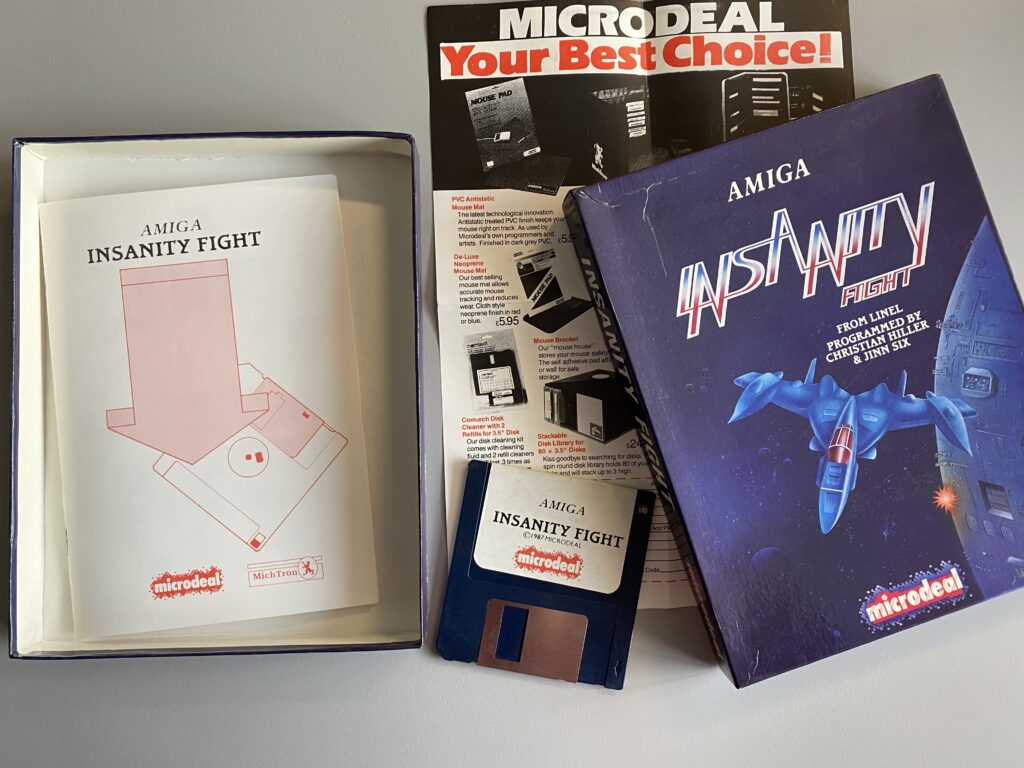
Figure 1: Insanity Fight by Christian Haller was the first game published under LINEL’s lable and distributed in cooperation with Microdeal.
LINEL closed its game publishing business in 1995 and was officially dissolved a few years later. There was never a website nor is there a reliable list available that records all LINEL games. But some of the classic games collection websites provide information about those games. One of the best resources to find older games is the website Mobygames whose community is very active and holds a high standard of information. MobyGames focuses on documenting most aspects of information related to electronic games. It credits LINEL for 16 games. These are the following:
Insanity Fight (1987 on Amiga, Atari ST)
Exolon (1987 on Amiga), (Atari ST, Commodore 64, ZX Spectrum by Hewson)
Crack (1988 on Amiga)
Dugger (1988 on Amiga, Atari ST)
Eliminator (1988 on Amiga), (Atari ST, Commodore 64, ZX Spectrum by Hewson)
Kaiser (1988 on DOS, Amiga), (Atari ST by CCD Beyelstein)
The Champ (1989 on Amiga, Commodore 64, ZX Spectrum)
Baby Bug (1989 on Amiga)
Skate of the Art (1989 on Amiga)
The Neverending Story II: The Arcade Game (1990 on C64, ZX Spectrum, Amiga, Atari ST, DOS)
Necronom (1991 on Amiga)
Traders: The Intergalactic Trading Game (1991 on DOS, Amiga, Atari ST)
The Game of Life (1992 on DOS, Amiga)
Der Schatz im Silbersee (1993 on DOS)
Regent Deluxe (1994 on DOS)
Kaiser Deluxe (1995 on DOS)
Markus Grimmer as publisher of LINEL points out that the games Exolon (1987) and Eliminator (1987) were ported from Atari ST to Amiga by LINEL’s coders. All other versions were developed and ported by the British game publishing company Hewson itself. And the original Atari ST version of Kaiser (1988) was developed by CCD Beyelstein and ported to Amiga (1989) and to DOS by LINEL. For The Champ (1989) and The Neverending Story II (1991) LINEL developed all versions including ZX Spectrum by themselves.
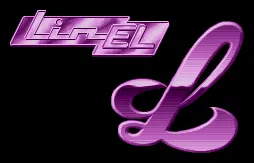
Figure 2: This Logo was used by LINEL from 1987 – 1993
The Website LemonAmiga credits LINEL with 14 games. Cross-referencing shows that three more LINEL games were published for Amiga. For the first two games, there is only little public information available.
Gnome (1991 on Amiga)
Kiro’s Quest (1992 on Amiga)
Regent v.2.0 (1992 on Amiga)
Most likely the two different releases Regent v2.0 on Amiga and Regent Deluxe on DOS were similar versions of the same game, but the releases were three years apart and Regent Deluxe came as a remake with much better graphics and was completely done in German.
At this point, after consulting Mobygames and LemonAmiga, we know of 19 games published by LINEL Trading GmbH over a period of 9 years from 1987 to 1995. But there are more.

Figure 3: LINEL’s Logo for the years from 1993 – 1995
Of those 19 games, three games were ported to other platforms: Exolon, Kaiser and Eliminator. Seven of the games were developed by Swiss developers and Swiss dev teams: Insanity Fight, Crack, Dugger, The Champ, Necronom, Traders and the Game of Life (The Golden Gate Crew). Of which The Champ and Necronom had mixed crews with British and Swiss developers. Two games were developed by a small New Zealand team called Vision: Gnome, Kiro’s Quest. And two by the Dutch dev crew 1001 Software Development: Baby Bug, Skate of the Art. This leaves four games that were developed in mixed crews with German, Swiss and other developers, whereas some teams were bigger and had mostly German developers as for the adventure game Der Schatz im Silbersee (Cybervision).
In 1989, LINEL signed a contract with two German developers, Guido Henkel and Hans-Jürgen Bräunle, to publish their game Drachen von Laas after the two fell out with German publisher Ariolasoft. The two developers called themselves Dragonware. LINEL is said to have been primarily interested in marketing the text adventure Ooze in the UK that was also developed by Henkel and Brändle and published first in 1988 on Atari ST with Ariolasoft. According to Henkel, LINEL delayed the release of Drachen von Laas, so the two German developers terminated their contract in 1990 and eventually released the game under their own new label Attic Entertainment.
From developer Guido Henkel also comes the information that he himself did the Amiga port of Kaiser in 1989 for LINEL. Furthermore, LINEL was allowed to release the game Ooze on the British market at the same time with a new cover by Michael Tschögl that impressed Henkel. All three UK-versions (DOS, Atari ST, Amiga) were published with the Dragonware label, but were distributed by LINEL and had LINEL’s and its inverstor’s Merimpex AG address in Liechtenstein on the back of the box-cover.
Ooze – Creepy Nites (UK 1989 on Amiga, Atari ST, DOS)
With the English releases of Ooze – Creepy Nites (1989), we now know of 20 games by LINEL. But besides the cooperation with British publishers, Grimmer had another cooperation going that was widely overlooked. The cooperation with the Italian developers of GENIAS. This cooperation was mostly about distributing each other’s existing games in the other language area. LINEL games like The Champ (1988) were distributed by GENIAS in Italy while GENIAS games like Dragon’s Kingdom (1990) were distributed by LINEL in the UK as cassette tapes. Information about this specific C64 version can be found on the Website of LemonC64. It indicates Alberto Frabetti as programmer and author. GENIAS is mentioned as publisher and LINEL as Copyright Holder. This may have been the other way around, since LINEL shows up as publisher in many reviews of GENIAS games in the UK and functioned as distributor for GENIAS out of an office in High Wycombe, northwest of London.
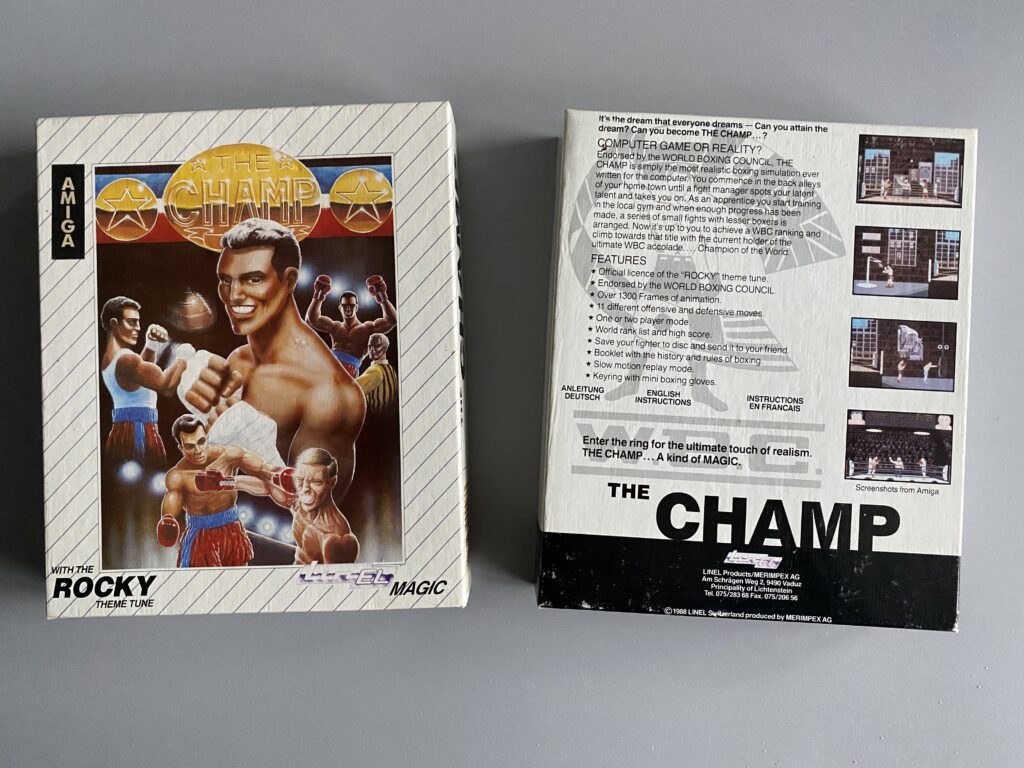
Figure 4: The Champ (1988) was produced by LINEL in the UK and distributed on several platforms in the UK, France, Germany, Austria, Switzerland and Italy.
LemonC64 also has information for Catalypse (1992). This R-Type-like or Armalyte-like game came out very late in the C64’s commercial golden age. The community considers it a rather good and high-quality shooter, unfortunately one review by Zzap magazine gave it a very low rating. It was made by Andrea Pompili of GENIAS. LINEL’s Michael Tschögl made the music for the stylish C64 shooter.[1] And at least the first part sounds a bit like the music Tschögl composed for the The Neverending Story II: The Arcade Game (1990) which was done for C64 and other platforms in several languages by LINEL.
The cooperation between LINEL and GENIAS started with the World Cup 90 game that needed immediate distribution outside of Italy. LINEL is not mentioned on the boxes or on any of the preservation websites. But Markus Grimmer distributed the football game for the Italians out of his office in England that is printed on all boxes of the GENIAS game: “24A WHITE PIT LANE, FLACKWELL HEATH, NR HIGH WYCOMBE, BUCKINGHAMSHIRE HP10 9HR, TEL. 06285 31 244, FAX. 06285 30 875”. Other games from GENIAS’ developers in Bologna that were distributed by LINEL in the UK were the beach volleyball game Over the Net (1990), the puzzle game Tilt (1991), the racing game Warm up (1991) and Top Wrestling (1992). In Germany, Rushware did take over the distribution of GENIAS games, but this was mediated by LINEL. Some of the boxes and commercial magazine ads state the address of the publisher as “GENIAS SOFTWARE c/o LINEL Guetlistrasse 9050 Appenzell, Schweiz”, while as the distributor is identified with “IM VERTRIEB VON RUSHWARE, Bruchweg 128-132, 4044 Kaarst 2.” Among those games were the already mentioned World Cup 90 (1990), Over the Net (1990), Dragons Kingdom (1990), Tilt (1991) and Warm up (1991). This means that overall, eight games from GENIAS were distributed by LINEL in the UK and by RUSHWARE c/o LINEL in Germany.
Dragon’s Kingdom (1990 on C64)
World Cup 90 (1990 on C64, Amiga, Atari ST, DOS)
Over the Net (1990 on Amiga)
Medieval Warriors (1991 on Amiga)
Tilt (1991 on Amiga, C64, DOS)
Warm up (1991 on Amiga, C64)
Top Wrestling (1992 on Amiga)
Catalypse (1992 on C64)
The game Medieval Warriors (1991) seems sort of an exception since it was designed by game developer Scott Lamb and first published in the USA by Merit Software. In a commercial magazine ad, LINEL advertises it in ASM (Germany), Issue 01/1992 together with its games Traders and The Neverending Story II for the German market. Medieval Warriors is a turn-based fantasy strategy game with an isometric view that looks like an early prototype of the RTS genre (real-time strategy game). It was itself an updated version of Scott Lamb’s famous two-player strategy game TeleEpic (1988), now updated with an enemy AI which allowed a player to play it alone.
There is one more thing to clarify. The websites Mobygames and Lemonamiga only list the English version of The Neverending Story II: The Arcade Game (1990) which was turned out in the UK and in the USA for C64, ZX Spectrum, Amiga, and DOS by LINEL in cooperation with Merit Studios Inc. But LINEL also released localized versions of the game for the German, the Italian, and the Spanish market. The preservation website Hall of Light has some information on all four versions. The German version Die unendliche Geschichte II – Das Arcade Adventure (1990) and the Italian version La Storia Infinita II (1990) have LINEL’s and its investor’s address in Vaduz on the back of the box: LINEL Products/MERIMPEX AG, Am Schrägen Weg 2, 9490 Vaduz, Principality of Liechtenstein, but they must have been manufactured in the UK as indicated on the back of the box. All four versions were licensed by Warner Brothers and Cinevox. The German version was distributed by Rushware, the Italian version by Sofitel. The Spanish version La Historia Interminable II – Arcade (1991) was published by LINEL a year later in cooperation with the company S4 System de Espana S.A. from Madrid for DOS, C64 (cassette) and Amiga. This version is the only one that does not have LINEL’s address on the back of the box, but the address of S4 System. According to Markus Grimmer, the Spanish version was the most popular of all four versions.
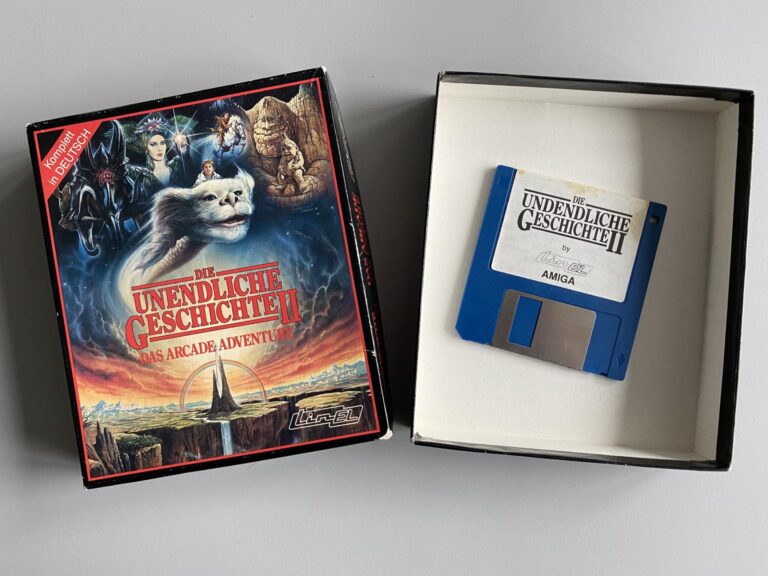
Figure 5: The Neverending Story II was publihsed by LINEL in four separate language versions in 1991, here the box and disk of the German version.
A year later, the disk mag Amiga Fun released an Amiga and a C64 version in German again in their issue 6/92. To complete our list, all four versions must be counted. As the disk mag release is a second edition, it should not appear in the list below but in a separate list of disk mag editions.
LINEL’s released games – a complete list
| Name | Year | Developer | Mode | Publisher | Platforms |
| Insanity Fight | 1987 | LINEL (CH) | O | LINEL/Microdeal | Amiga |
| Exolon | 1987 | LINEL (CH,UK) | P | Hewson | Amiga |
| Crack | 1988 | LINEL (CH) | O | LINEL | Amiga |
| Dugger | 1988 | LINEL (CH) | O | LINEL | Amiga |
| Eliminator | 1988 | LINEL (CH) | P | LINEL | Amiga |
| Kaiser | 1988 | LINEL (CH) | P | LINEL | Amiga |
| The Champ | 1989 | LINEL (CH) | O | LINEL | ACZ |
| Baby Bug | 1989 | 1001 Software Development (NL) | O | LINEL | Amiga |
| Skate of the Art | 1989 | 1001 Software Development (NL) | O | LINEL | Amiga |
| Ooze – Creepy Nites | 1989 | Dragonware (D) | P | LINEL | Amiga |
| Neverending Story II | 1990 | LINEL (CH, D) | O | LINEL/ Merit Studio | ACDZ |
| Unendliche Geschichte II | 1990 | LINEL (CH, D) | O, L | LINEL/ RUSH | ACD |
| Infinita Storia II | 1990 | LINEL (CH, D) | O, L | LINEL/ SOFTEL | ACDZ |
| Dragon’s Kingdom | 1990 | GENIAS (I) | O, D | LINEL/GENIAS/RUSH | C64 |
| World Cup | 1990 | GENIAS (I) | D | GENIAS/LINEL/RUSH | AACD |
| Over the Net | 1990 | GENIAS (I) | D | GENIAS/LINEL/RUSH | Amiga |
| Medieval Warriors | 1991 | Merit Software (USA) | D | LINEL/GENIAS/RUSH | AD |
| Storia Inter–minable II | 1991 | LINEL (CH, D) | O, L | LINEL/ S4 SYSTEM | ADC |
| Tilt | 1991 | GENIAS (I) | D | GENIAS/LINEL/RUSH | ACD |
| Warm up | 1991 | GENIAS (I) | D | GENIAS/LINEL/RUSH | AC |
| Gnome | 1991 | Vision (NZ) | O | LINEL | Amiga |
| Necronom | 1991 | Lunatic (UK,CH) | O | LINEL | Amiga |
| Traders | 1991 | LINEL (CH) | O | LINEL | AAD |
| Top Wrestling | 1992 | GENIAS (I) | D | GENIAS/LINEL/RUSH | Amiga |
| Catalypse | 1992 | GENIAS (I) | O, D | GENIAS/LINEL/RUSH | Amiga |
| Kiro’s Quest | 1992 | Vision (NZ) | O | LINEL | Amiga |
| Regent vs. 2.0 | 1992 | LINEL (CH, D) | P | LINEL | Amiga |
| The Game of Life | 1992 | LINEL (CH) | O | LINEL | AD |
| Der Schatz im Silbersee | 1993 | LINEL (CH, D) | O | LINEL | DOS |
| Regent Deluxe | 1994 | LINEL (CH, D) | O | LINEL | DOS |
| Kaiser Deluxe | 1995 | LINEL (CH, D) | O | LINEL | DOS, Atari |
Table 1: Overview of LINEL’s published games between 1987 and 1995.
This now makes 31 games that were either published by Swiss publisher LINEL itself or released in close cooperation with other publishers and distributors under LINEL’s own label in the years 1987 – 1995. In those years, LINEL had its temporary headquarters first in Arbon and St.Gallen, then in Vaduz, Liechtenstein and finally in Herisau Appenzell, but crucial for many international cooperative productions was the second office in England that solely focused on distributing games from LINEL and its partners in the UK (and USA). The UK market was the most lucrative at the time, but copy production was more diverse with cassette tapes, and floppy disks still in use while in Switzerland the same games were mostly sold on disks and cartridges. The Swiss developers themselves were involved in early conversions and releases for the UK and did their own games like Christian Haller’s Insanity Fight but they were not involved in the games by Italian developer GENIAS with the one exception of Michael Tschögl.
We noted that LINEL turned out a disk mag version of Die unendliche Geschichte II – Das Arcade Adventure (1990) in Amiga Fun 6/92. In a talk with the author, Markus Grimmer explained that from 1992 on LINEL had stopped working with disk duplication factories. Instead, they made conversions and sold licenses to magazines that were interested in publishing new editions of their games in disk mags. Grimmer cooperated with Marquard’s Computec GmbH and their distributor Gong Verlag. Grimmer points out that at that time the Gong Verlag was the mother company, and not Computec as later on. The German company had a wide portfolio of game magazines and started turning out special disk magazines for their customers. Between 1990 and 1996, eventually, nine of LINEL’s games received a second edition in one of the special magazines – overall there were (at least) 13 disk mag editions of LINEL games.
Additional disk mag editions of LINEL games
| Name | Year | Developer | Mode | Publisher/ Magazine | Platforms |
| World Cup 90 | 1990 | GENIAS (I) | D | Amiga Fun 7/90, PC Action 7/90, Golden Disk 64 10/90 | ACD |
| Crack | 1991 | LINEL (CH) | D | Amigo! 3/91 | Amiga |
| Dugger | 1991 | LINEL (CH) | D | Amigo! 4/91 | Amiga |
| Gnome | 1992 | LINEL (CH,NZ) | D | Amiga Fun 1/92 | Amiga |
| Unendliche Geschichte II | 1992 | LINEL (CH, D) | D, P | Amiga Fun 6/92, Golden Disk 64 04/92 | AC |
| Kiro’s Quest | 1995 | LINEL (CH, NZ) | D | Amigo! 3/95 | Amiga |
| Necronom | 1995 | LINEL (CH,UK) | D | Amiga Fun 5/95, Amiga Games CD-ROM 1/96 | Amiga |
| Traders | 1996 | LINEL (CH) | D | Bestseller Games Special 5, 13 | DOS, Win |
| Kaiser Deluxe | 1996 | LINEL (CH, D) | D | Bestseller Games Special 13 | DOS, Win |
Table 2: Overview of LINEL’s additional game editions in disk mags between 1990 and 1996.
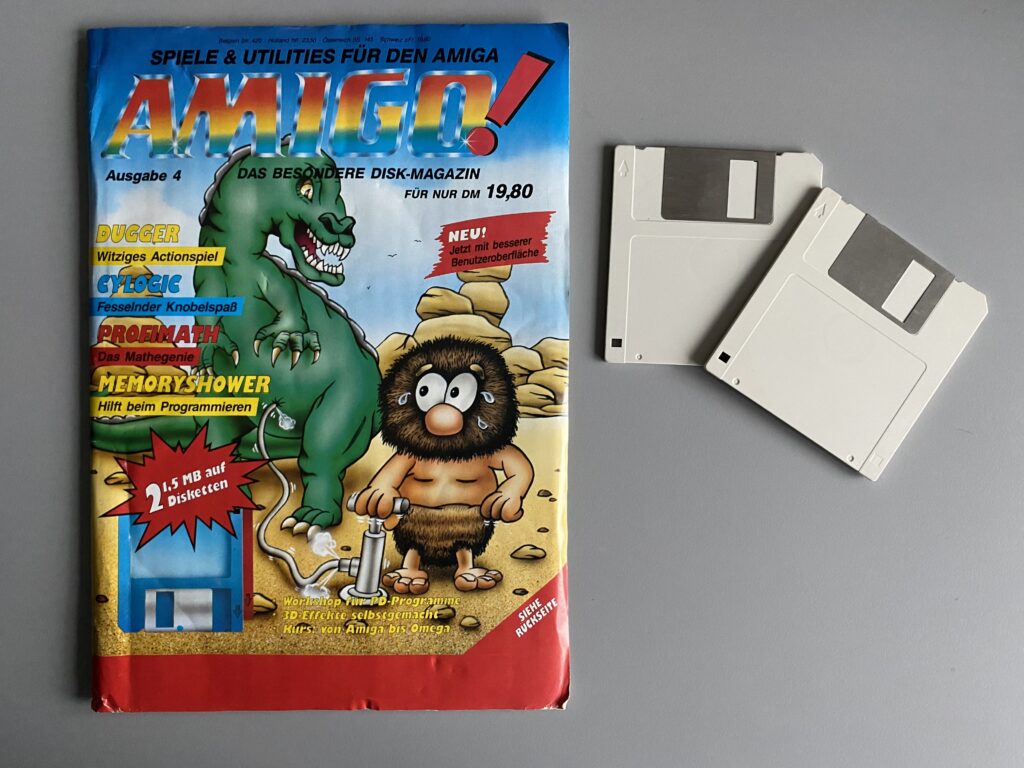
Figure 6: LINEL’s Dugger had a second release as disk mag in Amigo! 4/1991.
As the first part of this essay on LINEL tried to compile a complete list of all LINEL’s released games, the second part will focus on LINEL’s international cooperation and its unreleased games and try to uncover on one side as many connections as possible, and on the other side, as many canceled and failed projects as may possibly be traced.
The third part of this essay will take a closer look at the people that worked with and for LINEL and their working and career situations during those busy years.
The final fourth part will focus on the publishing business with the physical production of the commercial games, distribution and marketing strategies and communication efforts by LINEL.
Sources and Literature will follow at the end of part 4 of this essay.
[1] Comment on: LemonC64, (https://www.lemon64.com/game/catalypse), (26.12.2023) by Belshazzar 2005-06-11: “Did you know Michael Tschogl used the same musics for Never Ending Story II? Andrea Pompili (Catalypse’s programmer) wrote on a website he had to rewrite some catalypse music ‚cause the disc containing them arrived to him broken… Well, I think that at least the first song was unscathed, ‚cause it is absolutely identical to Never ending story II
However good game… What a pity Italians begun to write C64 games only at the end of its commercial life.”
LINEL – a Swiss Game Publisher /
— Part 1: Compiling a list of LINEL’s games
— Part 2: International Collaborations and Unreleased Games
— Part 3: People and Work at LINEL
— Part 4: Publishing and Producing at LINEL
